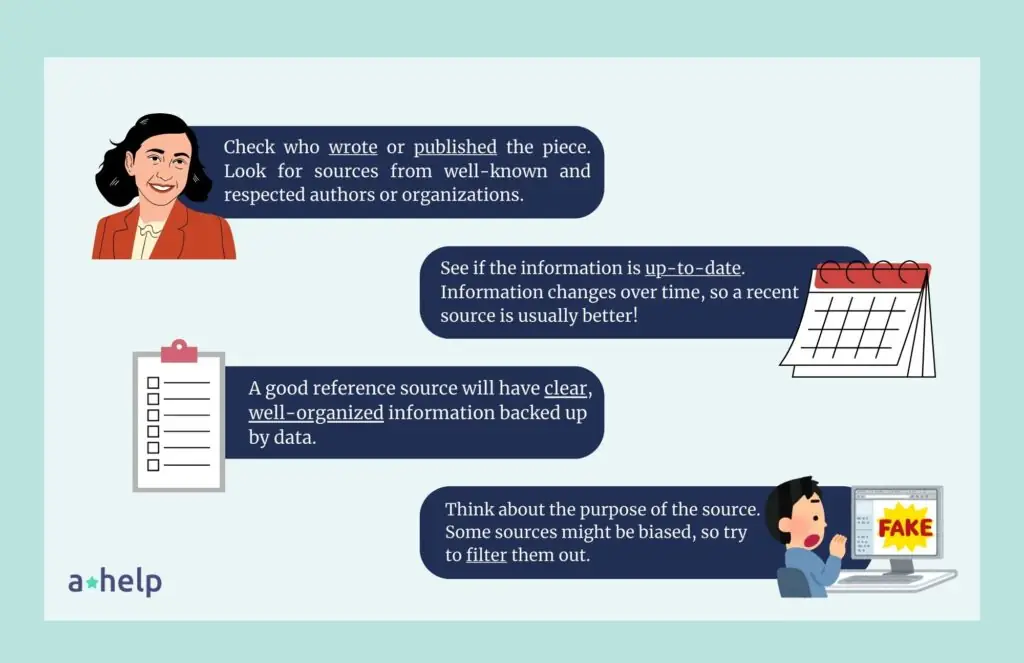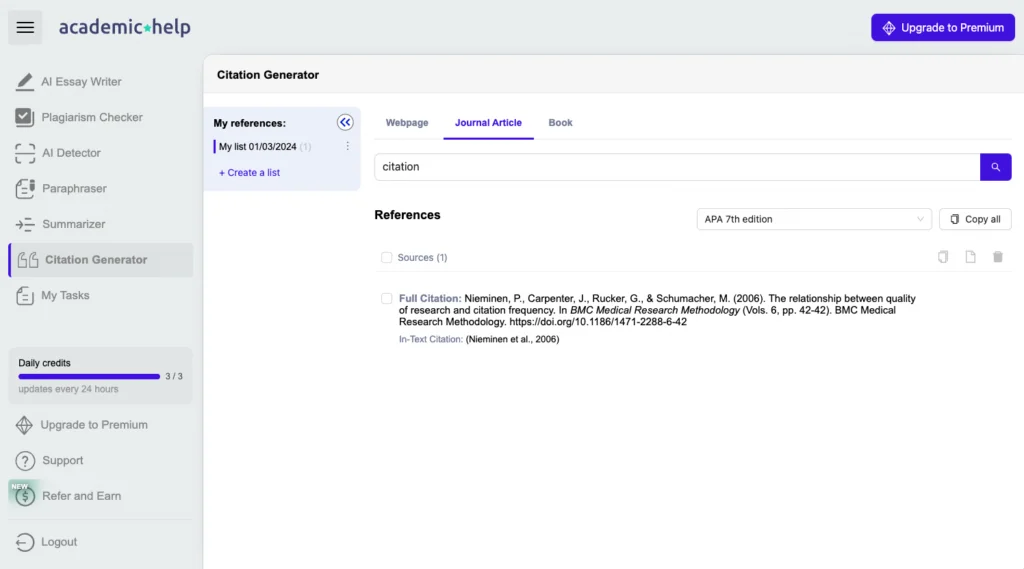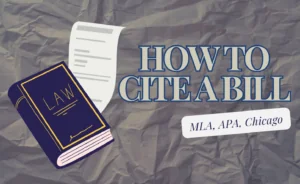Have you ever written an academic paper? Well, then you must have heard about reference sources! A reference source is a resource that offers viable and relevant information regarding a certain topic. Students often turn to them, when they need accurate facts, data, or any other type of statistics to back up their hypothesis or the thing being described. Reference sources come in many shapes and sizes, from dictionaries and encyclopedias to almanacs and atlases. So, whether you’re writing an essay, working on a project, or just curious about something, reference sources are your go-to helpers.

✅ AI Essay Writer ✅ AI Detector ✅ Plagchecker ✅ Paraphraser
✅ Summarizer ✅ Citation Generator
Definition of a Reference Source
A reference source is a resource that provides specific information or data to answer questions or clarify facts. It’s like a guide that helps you find the right information quickly and accurately (and we know you don’t have time to sift through tons of books). Reference sources are usually trusted and authoritative, meaning you can rely on the information they provide. These sources are not meant to be read from start to finish. Instead, they are designed for you to look up specific pieces of information. So, when you need a quick fact or a clear explanation, a reference source is the tool you turn to.
There are several types of reference sources, each serving a different purpose, but equally important for a top-notch paper.
| Type of Reference Source | Description |
|---|---|
| 📖 Dictionaries | Provide definitions and spellings of words. |
| 📗 Encyclopedias | Offer concise summaries of knowledge on various topics. |
| 📓 Almanacs | Annual publications with various statistics and facts. |
| 🗂 Directories | Listings of individuals, organizations, or services. |
| 🗺 Atlases | Collections of maps. |
| 📕 Bibliographies | Lists of sources on a specific subject. |
| ✍️ Handbooks and Manuals | Provide detailed instructions or guidelines on specific topics. |
Each type of reference source serves a specific purpose in helping users find accurate information. Speaking of tips, if you can’t find anything proper when writing about a certain topic, try looking up a different type of reference source. Besides, it never hurts to investigate varying perspectives and specifics of a subject, so consider several types of reference sources when writing to make your paper at least seem well-balanced and thought out.
How to Know Your Reference Source Is Good?
Finding a reference source related to your paper is great, but how do you know if you can use it? With the overflow of information and many dishonest practices that may or may not include ChatGPT in some high-end academic journals, it can be a challenge to land on a reputable article.
But not to worry! Of course, you can’t start an independent research project to back up every single reference you use, but there is a way to filter out suspicious documents. Here are a few tips you should keep in mind when hunting for reference sources.

By keeping these criteria in mind, you can choose reference sources that are reliable, which will help you in your research and get that A+ secured. An alternative way to establish the source’s credibility quickly is to consider using the options offered by our Source Citation Generator!
Why Should You Use Reference Sources?
Reference sources are incredibly useful for various reasons. Firstly, they’re great for quick fact-checking. When you need to confirm a fact or figure, a reliable reference source can provide the answer instantly. This is especially handy when you’re writing a paper or preparing a presentation and need to make sure your facts are correct.
Secondly, reference sources offer valuable background information for research projects. They can help you understand the broader context of your topic and provide a solid foundation for your work. This is particularly important when you’re exploring a new subject area or delving deeper into a complex issue.
All in all, reference sources are necessary for supporting academic and professional work. They provide credible and authoritative information that can improve the quality of your work and strengthen your arguments. In the professional world, reference sources can also help you stay updated with the latest developments in your field.

You can also use tools such as our Citation Generator to save time on creating a proper citation for your work. Simply find your source in the library, pick the necessary style, and voila! You have your reputable document and a polished citation for it.
Conclusion
So, what have we learned? Reference sources come in handy when we need quick, accurate facts. They are important for research, studying, and making informed decisions. But remember, with great power comes great responsibility. It’s important to choose reliable reference sources and use them wisely. So, next time you’re on a quest for knowledge, arm yourself with the right reference sources and you’ll be all set on getting a good grade!
FAQ
Follow us on Reddit for more insights and updates.





Comments (0)
Welcome to A*Help comments!
We’re all about debate and discussion at A*Help.
We value the diverse opinions of users, so you may find points of view that you don’t agree with. And that’s cool. However, there are certain things we’re not OK with: attempts to manipulate our data in any way, for example, or the posting of discriminative, offensive, hateful, or disparaging material.